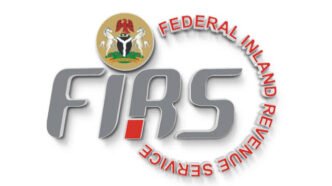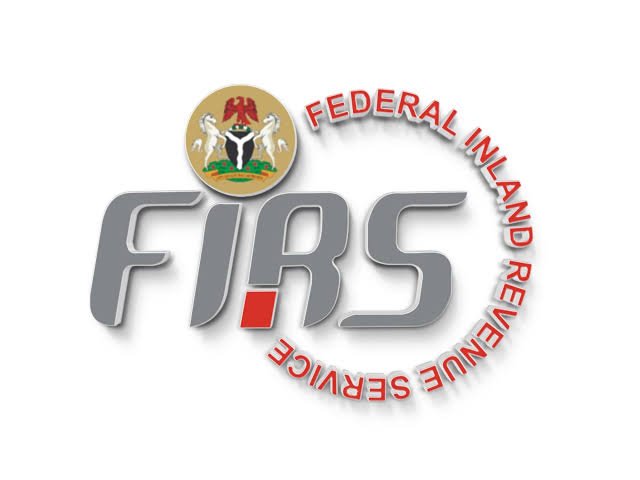The Federal Inland Revenue Service (FIRS) has thrown its weight behind the Federal Government’s borrowing strategy, declaring that debt remains a legitimate and indispensable component of every national budget. The tax authority’s defense comes amid growing debates on Nigeria’s rising debt profile, concerns from opposition parties, and apprehension from citizens already grappling with inflation, unemployment, and economic hardships.
In a statement on Tuesday, FIRS maintained that borrowing is not only a global practice but also a tested fiscal tool that allows governments to address critical infrastructural and developmental gaps while sustaining essential public services.
Borrowing as a Tool for National Development
According to the Service, Nigeria cannot depend solely on tax revenues to fund its ever-expanding budgetary needs. With infrastructural deficits running into trillions of naira, limited revenue from oil sales due to global price fluctuations, and a pressing need to diversify the economy, borrowing, it argued, is not just an option but a necessity.
“Debt, when managed responsibly, is a legitimate instrument for financing national budgets,” FIRS noted. “Countries across the world, including advanced economies, make use of borrowing to bridge fiscal gaps. What matters is the prudence, transparency, and accountability with which borrowed funds are utilized.”
The Service stressed that borrowing allows the government to fast-track capital projects such as roads, railways, hospitals, schools, and power infrastructure that are essential for stimulating economic growth and improving living standards.
A Global Practice, Not a Nigerian Phenomenon
Defending the borrowing plan further, FIRS highlighted examples of countries such as the United States, Japan, and the United Kingdom, which all operate with large public debts relative to their GDP.
Japan, for instance, has one of the highest debt-to-GDP ratios in the world, yet continues to function as a leading global economy. Similarly, the U.S. government frequently borrows to fund critical infrastructure, social security, and defense expenditures.
“Debt is not inherently negative. It becomes a problem only when mismanaged or when debt servicing obligations crowd out funds for development. Nigeria must therefore focus on using borrowed funds for productive ventures that yield long-term benefits,” the Service emphasized.
Balancing Borrowing with Revenue Mobilization
While defending the government’s borrowing plan, FIRS reiterated its commitment to strengthening domestic revenue mobilization. The agency explained that Nigeria must improve its tax-to-GDP ratio, which currently hovers around 10–11 percent, significantly below the African average of 18 percent.
It noted that the Service has already embarked on aggressive reforms to expand the tax net, enhance compliance, and curb leakages in tax collection.
“Our goal is to ensure that while the government leverages borrowing for urgent needs, domestic revenues grow to a level where reliance on debt is reduced over time,” FIRS said.
Some of the reforms include the deployment of advanced technology for tax administration, automation of payment systems, and a crackdown on tax evasion among both individuals and corporate entities.
Rising Public Concerns
Despite the assurance from FIRS, many Nigerians remain skeptical about the Federal Government’s borrowing spree. Critics argue that borrowed funds are often mismanaged, funneled into recurrent expenditures, or lost to corruption instead of being channeled into productive projects.
According to data from the Debt Management Office (DMO), Nigeria’s total public debt has been on an upward trajectory, surpassing ₦100 trillion in 2025, with external borrowings from international lenders accounting for a significant share.
Civil society organizations and economic analysts have warned that rising debt servicing costs, which already consume more than 60 percent of government revenues, could eventually stifle fiscal flexibility, leaving little room for investment in social services.
Expert Reactions
Dr. Akinloye Olaniran, an economist based in Lagos, told reporters that while debt is indeed a legitimate fiscal tool, Nigeria’s challenge lies in the efficient utilization of borrowed funds.
“Borrowing in itself is not bad. The critical question is: are we investing these funds in infrastructure that will expand productivity and create jobs? Or are we simply using loans to pay salaries and run government operations? That is where Nigerians’ fears are valid,” he said.
Similarly, financial analyst Zainab Yusuf argued that the government must work hand in hand with FIRS and other revenue agencies to ensure that future borrowing is complemented by sustainable domestic revenue growth.
“Relying heavily on borrowing without significantly improving tax collection and diversifying exports is a recipe for fiscal crisis. Nigeria needs to learn from countries that borrow but also have strong revenue systems to support repayment,” she explained.
Government’s Position
The Federal Government has consistently maintained that its borrowing strategy is aimed at stimulating the economy, addressing infrastructural decay, and providing a foundation for long-term growth. Officials have pointed out that Nigeria’s debt-to-GDP ratio, currently around 45 percent, remains within manageable thresholds compared to several other countries.
The government insists that most of the borrowings are concessional loans with favorable interest rates and extended repayment periods, which reduce the risk of debt distress.
“We are not borrowing for luxury or wasteful spending. We are borrowing for the future, to build the critical infrastructure that will make Nigeria competitive globally,” a finance ministry official said.
The Road Ahead
Observers believe that for FIRS’s defense of government borrowing to gain public trust, authorities must ensure transparency in loan agreements, efficient utilization of borrowed funds, and clear communication to citizens about the benefits of such borrowings.
Experts also recommend that the government accelerate reforms in revenue collection, diversify the economy beyond oil, and invest in sectors like agriculture, manufacturing, and technology that can generate sustainable growth.
Citizens, on their part, are urging the government to demonstrate accountability by publishing detailed reports on loan disbursements and project implementation to ensure that debts do not become a burden for future generations.
Conclusion
The Federal Inland Revenue Service’s defense of Nigeria’s borrowing strategy underscores the inevitability of debt as a fiscal tool in today’s global economy. While borrowing remains a legitimate means of financing national budgets, Nigerians’ concerns about mismanagement and rising debt servicing obligations cannot be ignored.
As Nigeria continues to navigate its economic challenges, the balance between prudent borrowing, efficient revenue mobilization, and accountable governance will determine whether debt serves as a ladder to sustainable development or a trap for future crises.














